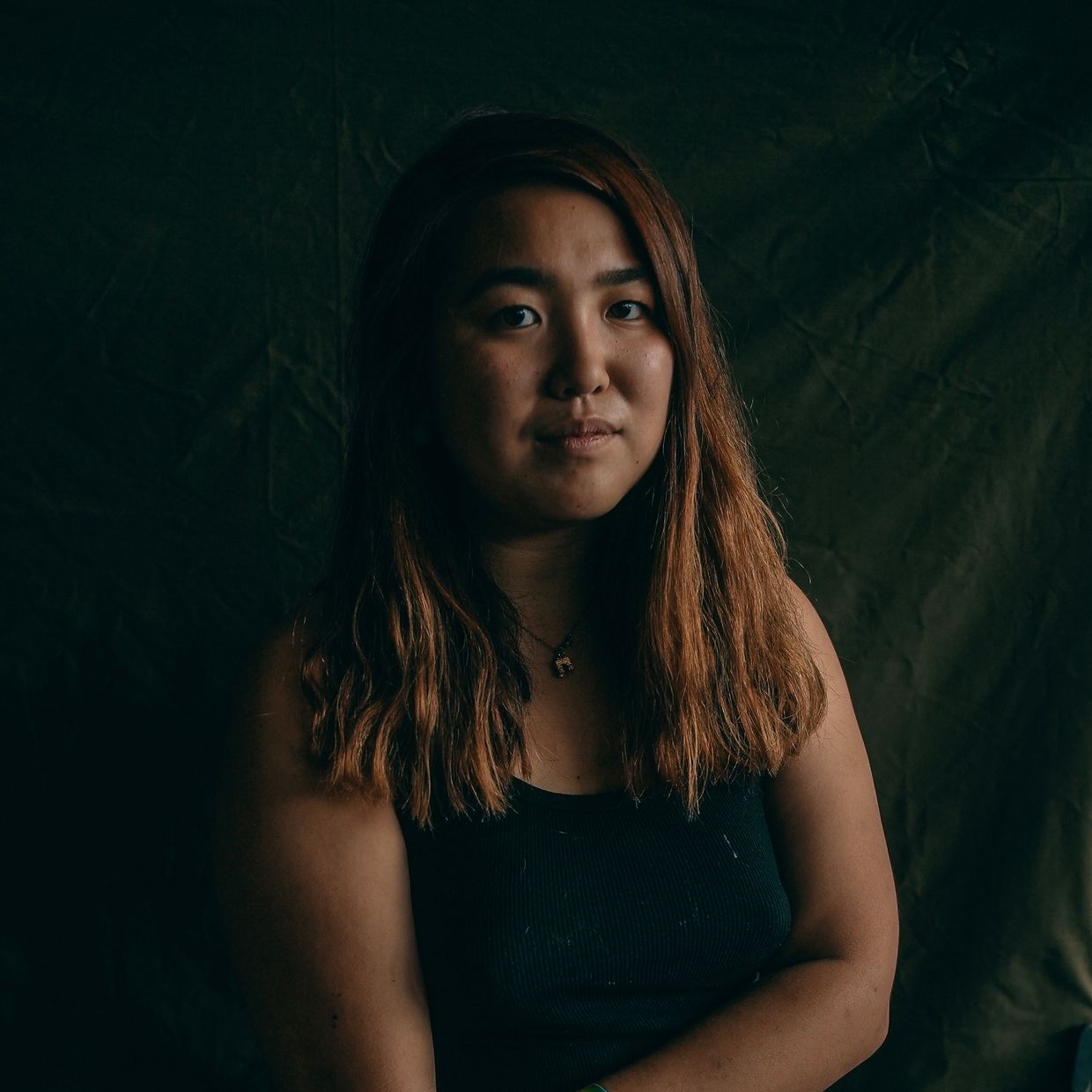Editor's note: This article contains graphic descriptions.
SUMY — Valeriia Maksimova and her husband woke up to the first explosion in central Sumy at around 10 a.m. Their house was damaged by the blast wave.
The 38-year-old rushed to the kitchen to start clearing the rubble when the second explosion struck, throwing her three meters, into the corridor. Their apartment was all but destroyed.
“Everything happened so quickly,” Maksimova told the Kyiv Independent the day after the attack.
Maksimova, her husband, and their 19-year-old son were lucky to survive.
Russia’s morning double-tap missile strike on the northeastern city of Sumy killed 35 civilians and wounded over 110 in what became the deadliest attack in many months. Two children were among the killed.
Russia deployed cluster munitions in its second attack that occurred a few minutes after the first, inflicting deliberate casualties on civilians in downtown Sumy on Palm Sunday, local authorities told the Kyiv Independent.
Outgoing U.S. Ambassador to Ukraine Bridget Brink confirmed Russia’s deployment of the cluster munitions on April 13.
Maksimova’s husband, Volodymyr, remembers witnessing half a body outside, saying that “it was impossible to watch.” For him, it is a shock that the apartment where he had lived all his life — and where he raised his only son — was now without windows and covered in rubble.
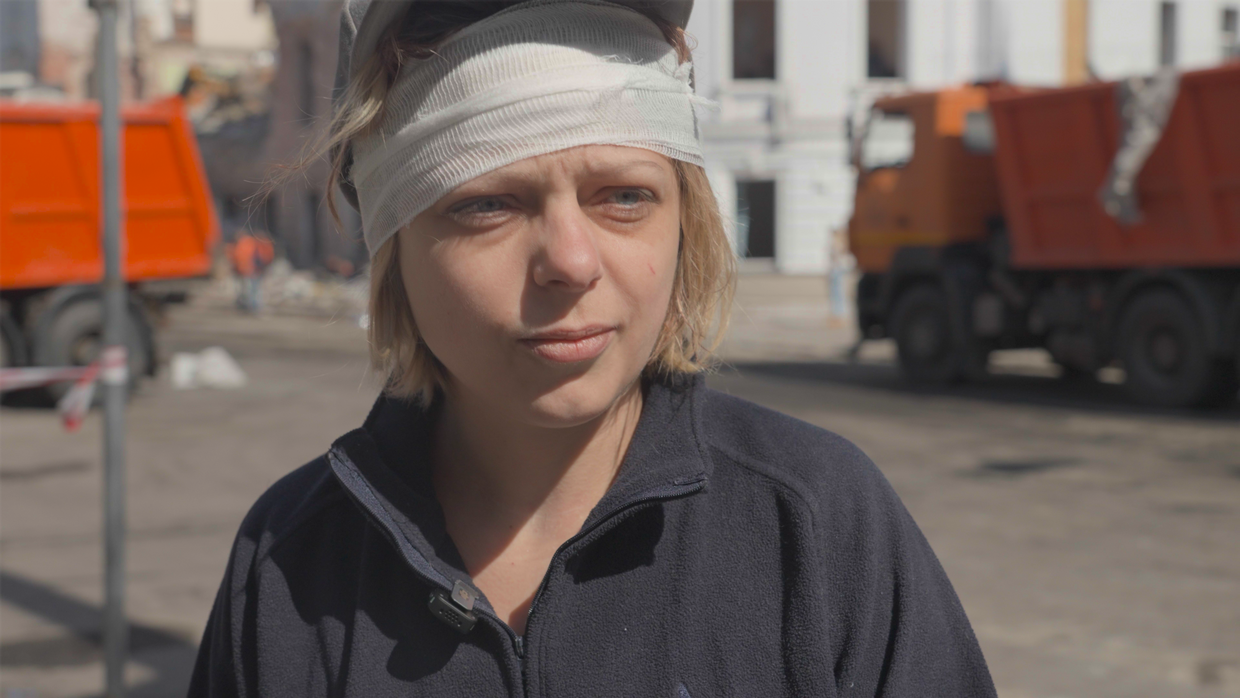
“We could have never imagined that such things would happen,” Volodymyr said, describing what he saw outside as “panic, screams, and hysteria.”
“The whole street was covered with corpses and wounded people,” he added.
The deadly attack comes as the U.S. tries to end the three-year-long war in Ukraine at all costs, pushing for a rushed peace deal. Two days before the attack, U.S. Special Envoy Steve Witkoff met with Russian President Vladimir Putin in St. Petersburg to discuss “aspects of the Ukrainian settlement.”
U.S. President Donald Trump, who has long stood by his belief that Russia was serious about peace talks, called the Sumy attack “terrible” but added that Russia conducted it by “mistake” without elaborating further.
The Sumy attack followed another deadly Russian missile strike on the city of Kryvyi Rih in the central-eastern Dnipropetrovsk Oblast on April 4, which saw 20 people killed, including nine children.
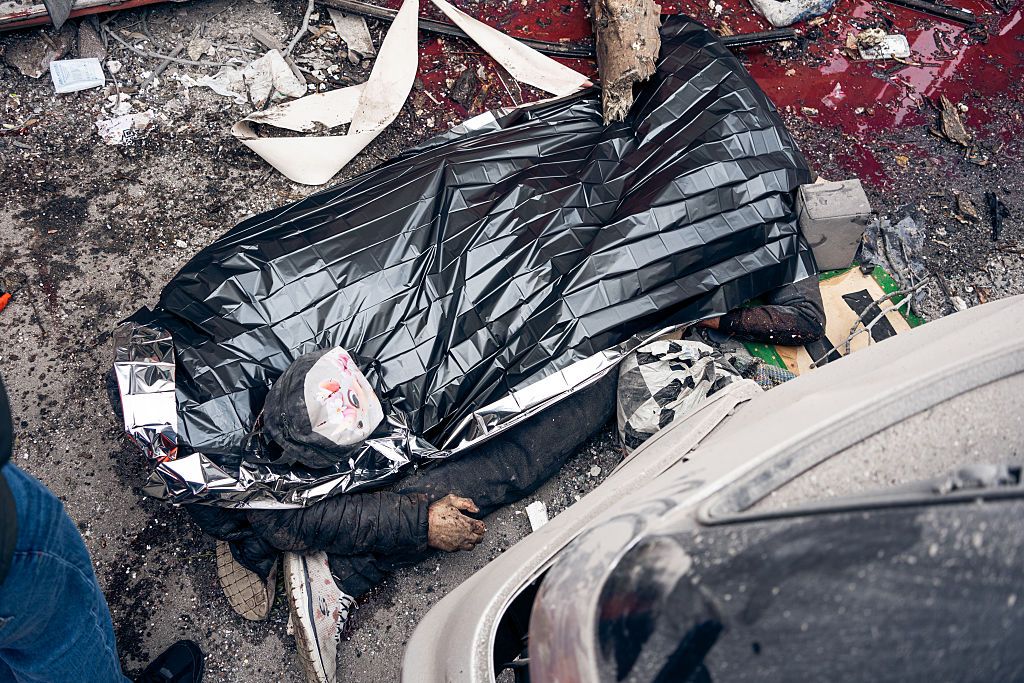
The weak American response to the attacks was contrasted by a frank one from Europe.
European leaders condemned the Russian attack on Sumy as “a war crime,” with U.K. Prime Minister Keir Starmer saying that he was “appalled” by Moscow’s latest targeting of civilians.
French President Emmanuel Macron called for stronger measures to impose the ceasefire on Russia, echoing President Volodymyr Zelensky’s call.
European countries have also mustered up billions of dollars in military support.
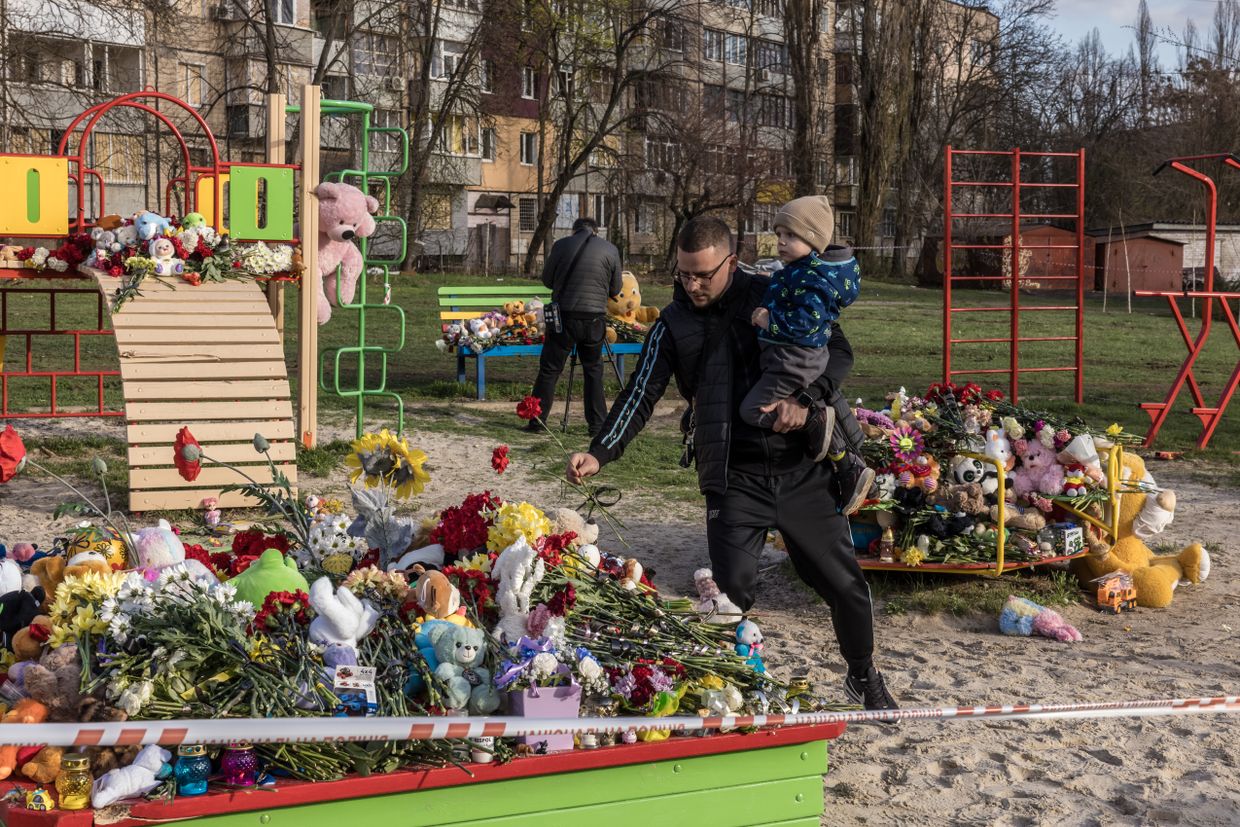
Distrustful of peace talks
From morning up until sundown, relatives and friends of the killed, as well as many locals who were devastated by the strike, dropped by the blast site to lay flowers and toys in tribute to the victims.
Sumy residents who spoke to the Kyiv Independent harshly dismissed the feasibility of peace talks, saying that the attacks have only gotten worse in recent months compared to a year ago. Many said they now live in fear.
They also expressed deep “hatred” toward Russia for continuously launching such deadly attacks.
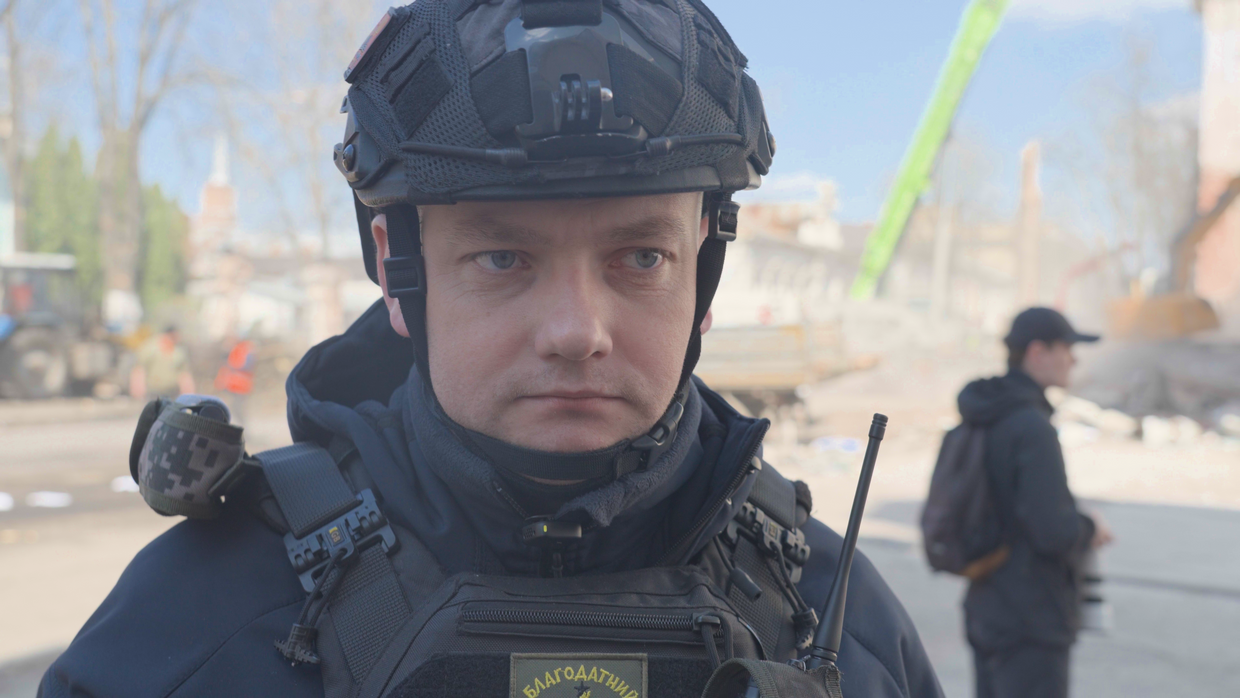
The attacks in the northeastern areas have intensified following Ukraine’s surprise cross-border incursion into Russia’s adjacent Kursk Oblast, where Ukrainian troops held a nearby town of Sudzha for seven months before they were forced to withdraw in March. Fighting still continues in the border areas.
Emergency workers continued to dismantle the ruins of the Sumy State University building that was ruined by the Russian attack, carefully using a crane to ensure there were no victims inside. They told the Kyiv Independent that all casualties were pedestrians and civilians in their own vehicles or public transport, with no victims found under the rubble in any of the destruction or damaged sites.
The emergency workers found the largest number of killed victims in the burnt bus, with the preliminary count being seven dead, according to Oleh Strilka, a 35-year-old spokesperson at the local State Emergency Service. There were elderly people and children in the bus, he added.
Two emergency workers told the Kyiv Independent that the team had to break down the burnt-out vehicles to recover the corpses.
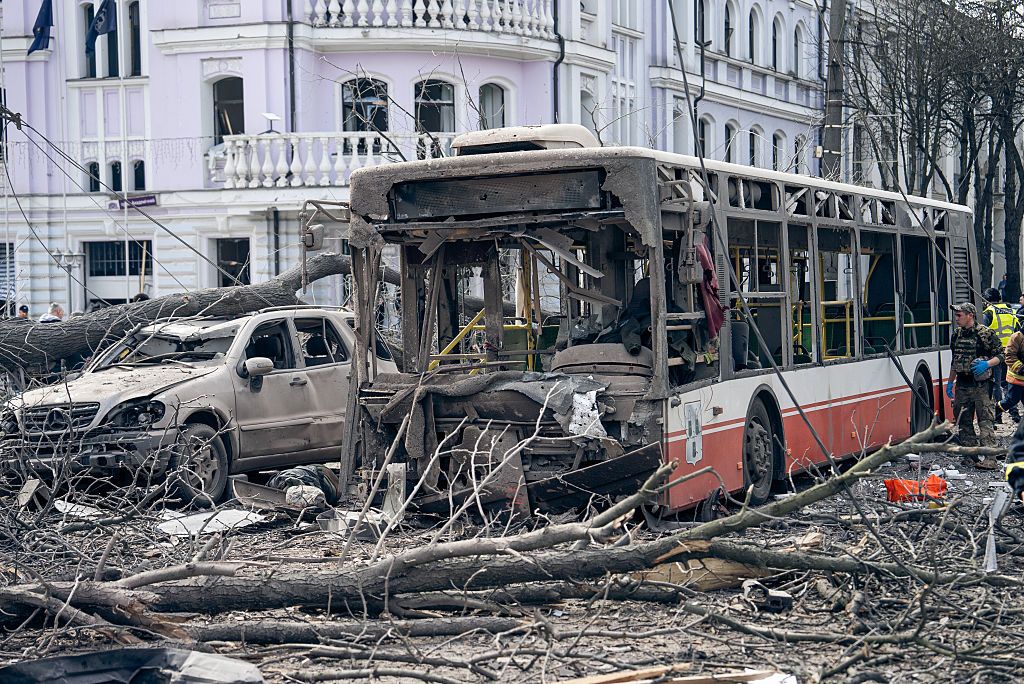
“You never see such things in terrible films, people being burnt alive,” Strilka told the Kyiv Independent at the attack site, saying that he believes Russia is trying to “destroy us.”
In one of the vehicles, one of the emergency workers said he saw two people who had been burned alive, and in another, there was a victim who had suffered from shrapnel wounds and died before the rescuers were able to pull the wounded out.
Over 50 buildings were damaged in central Sumy, according to the State Emergency Service. The constant aerial threat veiled Sumy throughout the day on April 14, with the emergency workers having to rush to the shelter each time.
The two missile attacks happened within less than five minutes of each other, giving enough people and rescuers time to run outside to help the wounded when the second one struck, according to the emergency service workers interviewed.
Iryna Kulomza, who oversees a seafood shop owned by her son underneath Maksimova’s apartment building, is now uncertain about her business prospects.
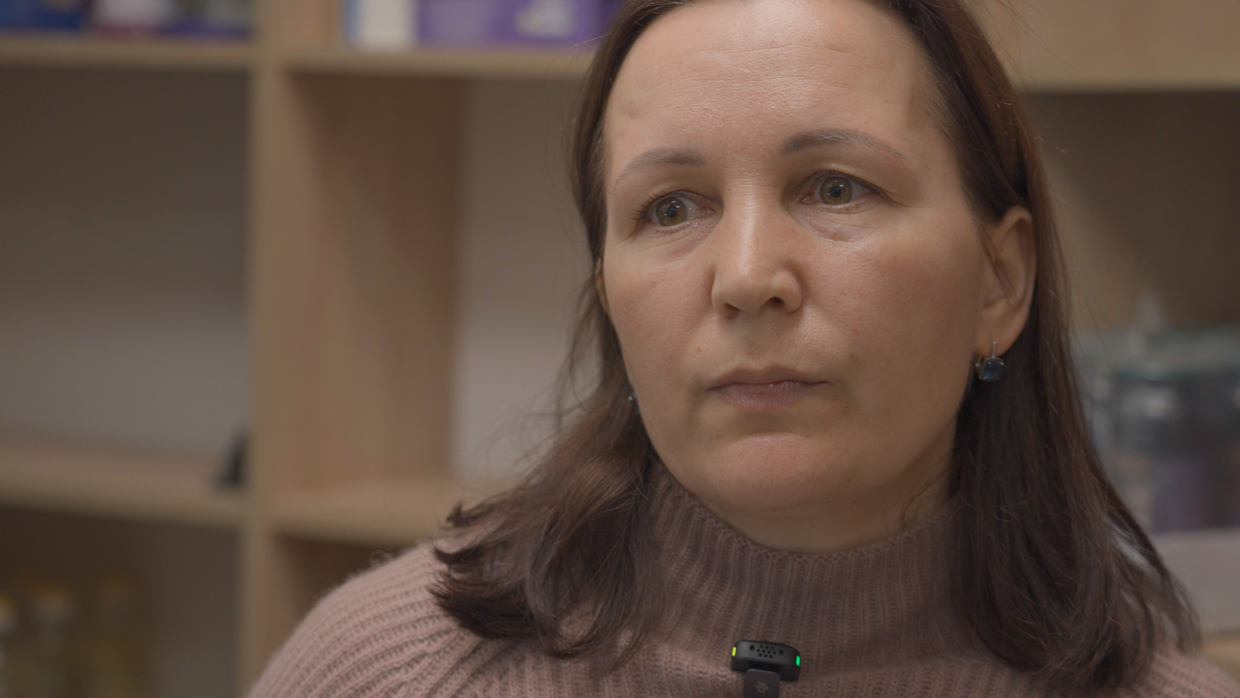
The director of the shop had received heavy injuries — and remains in the hospital awaiting surgery — after she had run outside to help the wounded following the first strike. Her other employees working that day were wounded as well.
Kulomza said that her 25-year-old family business, Dary Morya, had been heavily affected by the war. Just a week ago, she said that the business’s manufacturing site had been struck with Shahed-type attack drones, burning nearly 500 tons of goods.
“It’s hard to say something, we don’t know (what our future holds),” Kulomza said, who expressed uncertainty over heading to the basement shelter each time there is an aerial threat or putting the employees at risk.
As Kulomza was speaking, the employees were busy cleaning the damaged shop.

The feeling of uncertainty and devastation was spread across the entire city, home to some 250,000 people before the full-scale war, the day after the missile attack.
Three elderly women sat on a bench outside in the courtyard behind their apartment building, facing the intersection and the demolished university building on April 14. One of them, Liudmyla Shelyhina, said they sat in different spots to distract themselves from what was happening.
Shaken from what happened the day prior, the 70-year-old, who walks with a cane, had hit her head hard due to the blast wave and had suffered a concussion. She said that something had fallen on her legs as well.
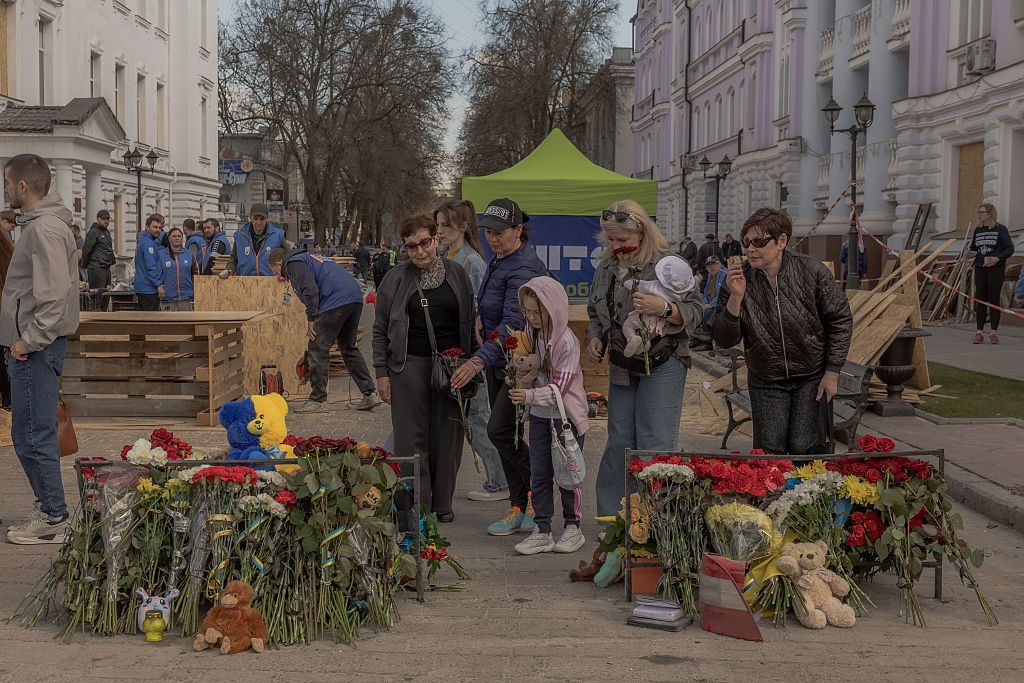
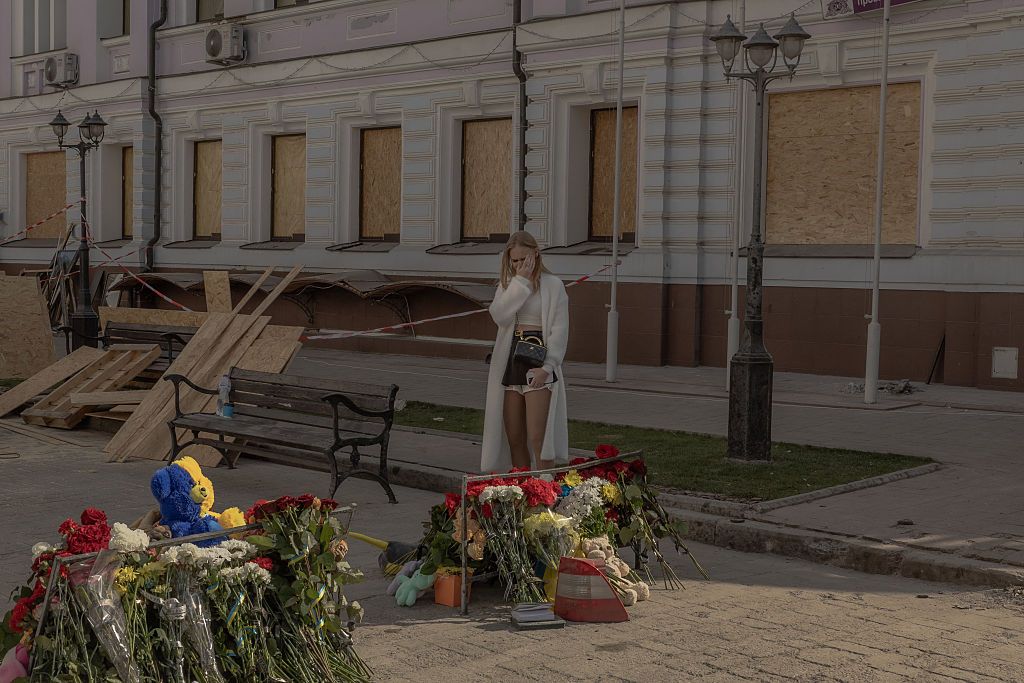
She is worried whether her pension of 4,000 hryvnia (about $100) would be enough to support the damage left behind from the attack in her apartment. But she said she has her husband’s support.
While Shelyhina said that even though she had warm memories of Sumy and the recollection from her younger years in the neighborhood, “now there are no good memories” that she remembers because of the series of devastating attacks and war horrors.
Dismissing prospects of the U.S. trying to pull through peace negotiations with Russia, Shelyhina said that she is scared, not for herself but for those who haven’t lived their lives yet.
“You can only negotiate with a person who will give you his words and keep them,” Shelyhina told the Kyiv Independent.
“If a person gives you his words and then tries to deceive you, what kind of negotiations (can we have)?”
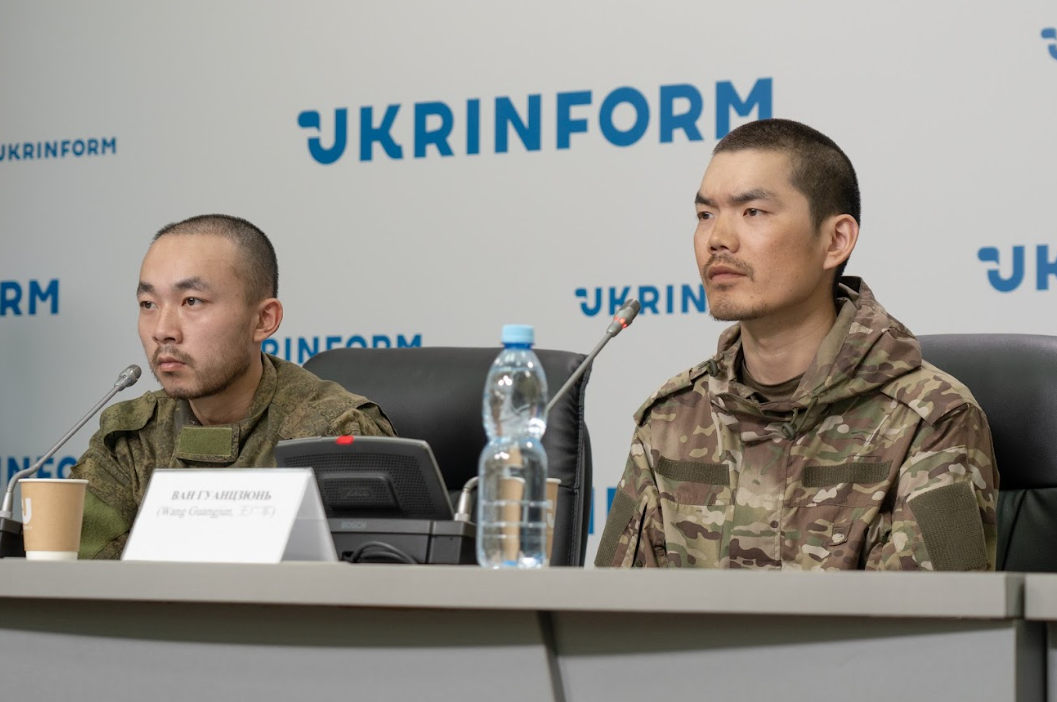
Note from the author:
This is Asami from the Kyiv Independent. Thank you for reading the story.
Telling human stories is the most difficult part of my work, at least for me. Russia's deadly attacks against Ukraine rage on, killing many civilians who had already suffered so much from the war. My colleagues and I are working around the clock to bring you the latest updates.
Please consider joining the Kyiv Independent community. Your support helps sustain our work.
Thank you.
